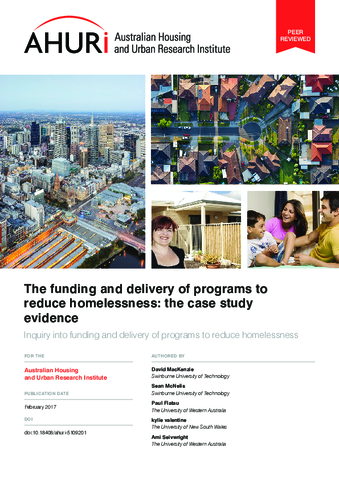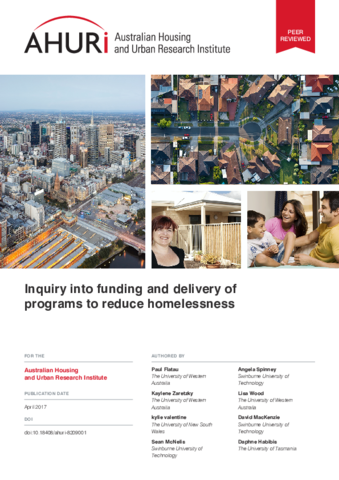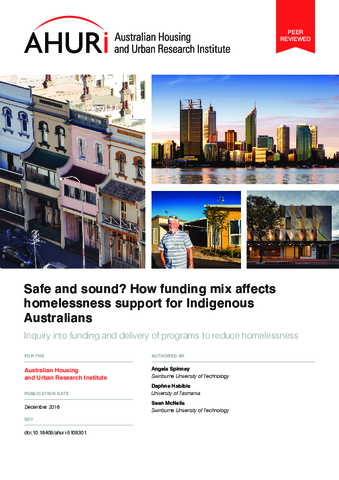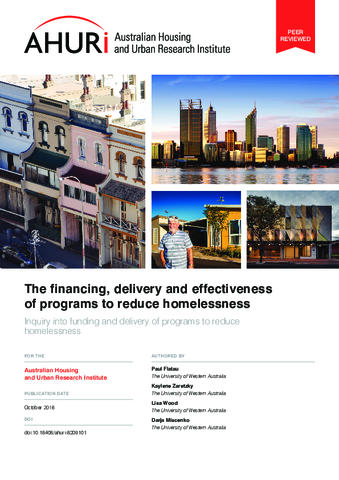This research provides evidence from the Australian Homelessness Funding and Delivery Survey of how services supporting those experiencing homelessness are funded and how different forms of funding and the level of funding impacts on the delivery of homelessness assistance. It is one of three reports to be released as part of an AHURI Inquiry into the funding and delivery of programs to reduce homelessness.
The Australian Homelessness Funding and Delivery Survey found that the predominant source of funding of homelessness services in Australia is government funding. Recurrent government funding is estimated to account for 84.6 per cent of funding received by Specialist Homelessness Services (SHSs) and 60.6 per cent of funding for non-SHSs. SHSs are defined as those services that receive funding through targeted Commonwealth and state and territory government homelessness programs.
The main non-government sources of funding used by homelessness services include donations, sponsorships and philanthropy and internally-generated revenue such as rent from supported accommodation services.
Funding from government sources and from corporate grants and sponsorships has lower levels of flexibility and discretion than other sources of funding. The greatest level of flexibility and discretion in funding was found to be community donations, fundraising and large private donations.
Key areas for policy development include greater certainty around future government funding of homelessness services; supportive measures to increase the level of non-government funding; and addressing the significant concerns reported by services with respect to the costs of funding diversification.





